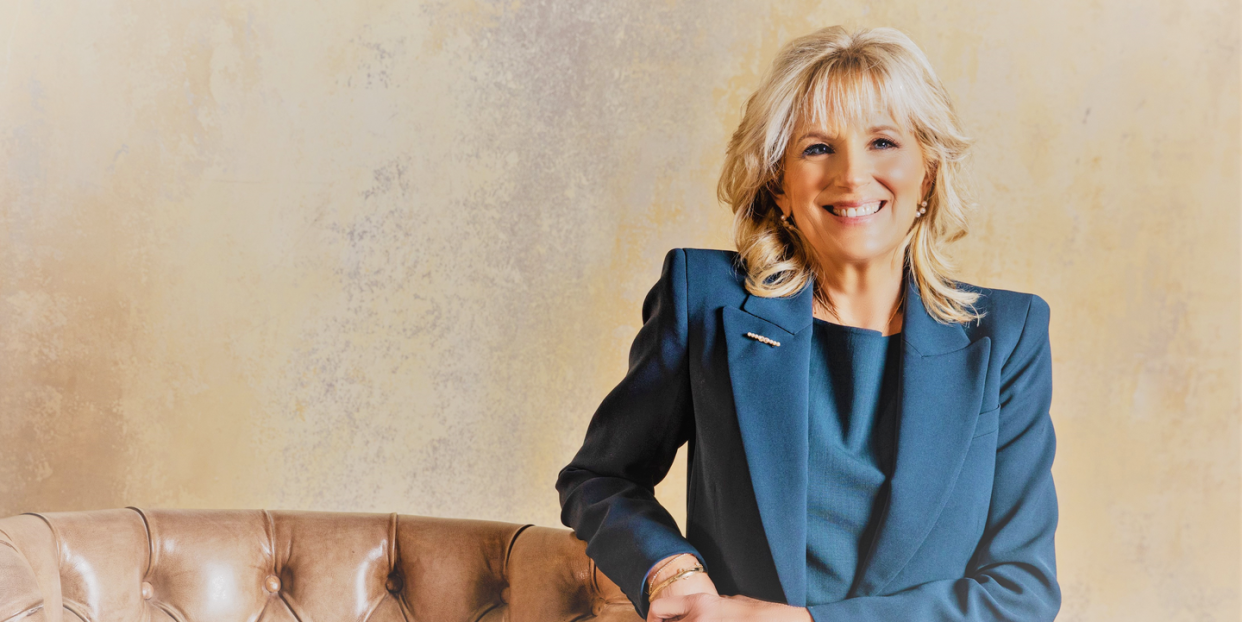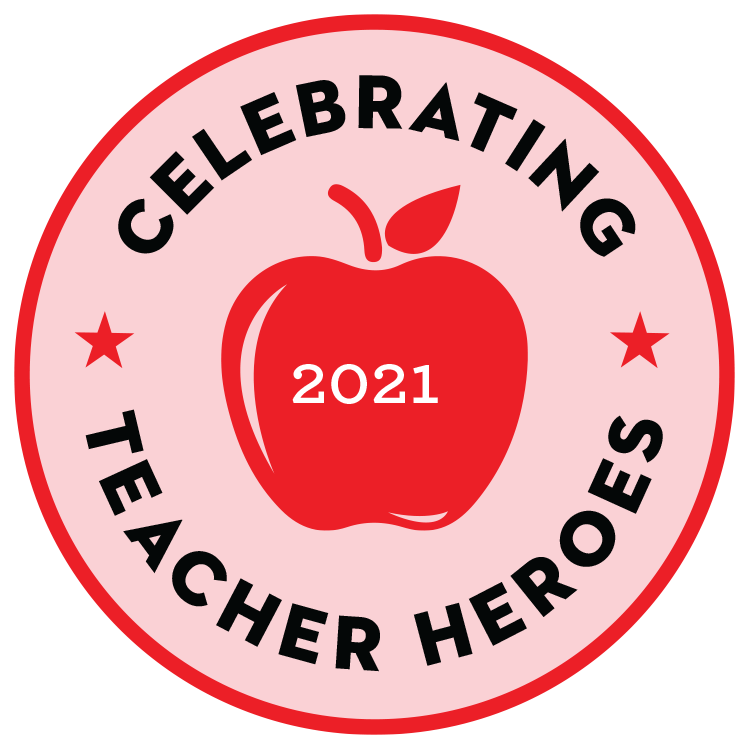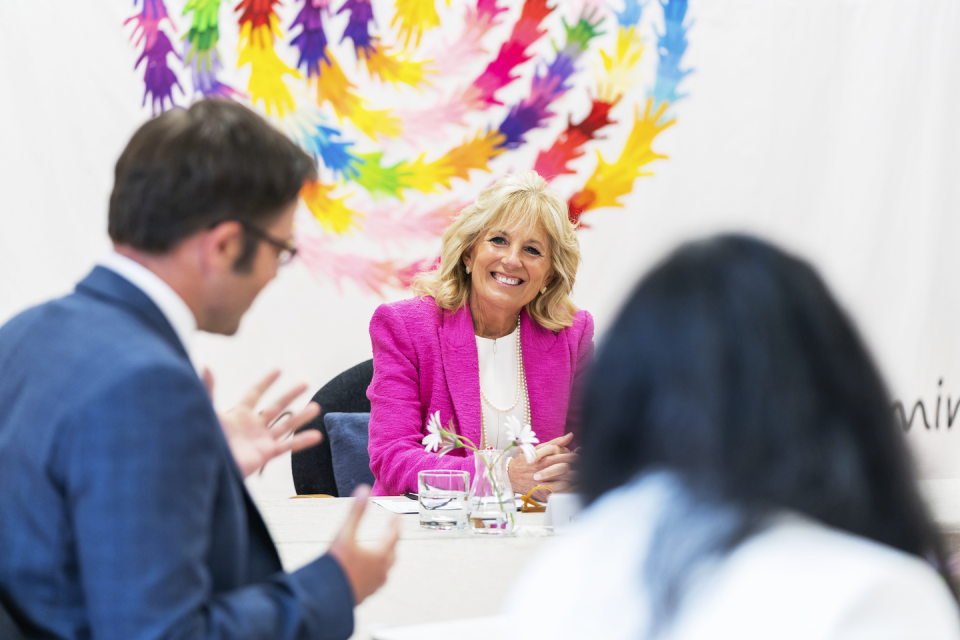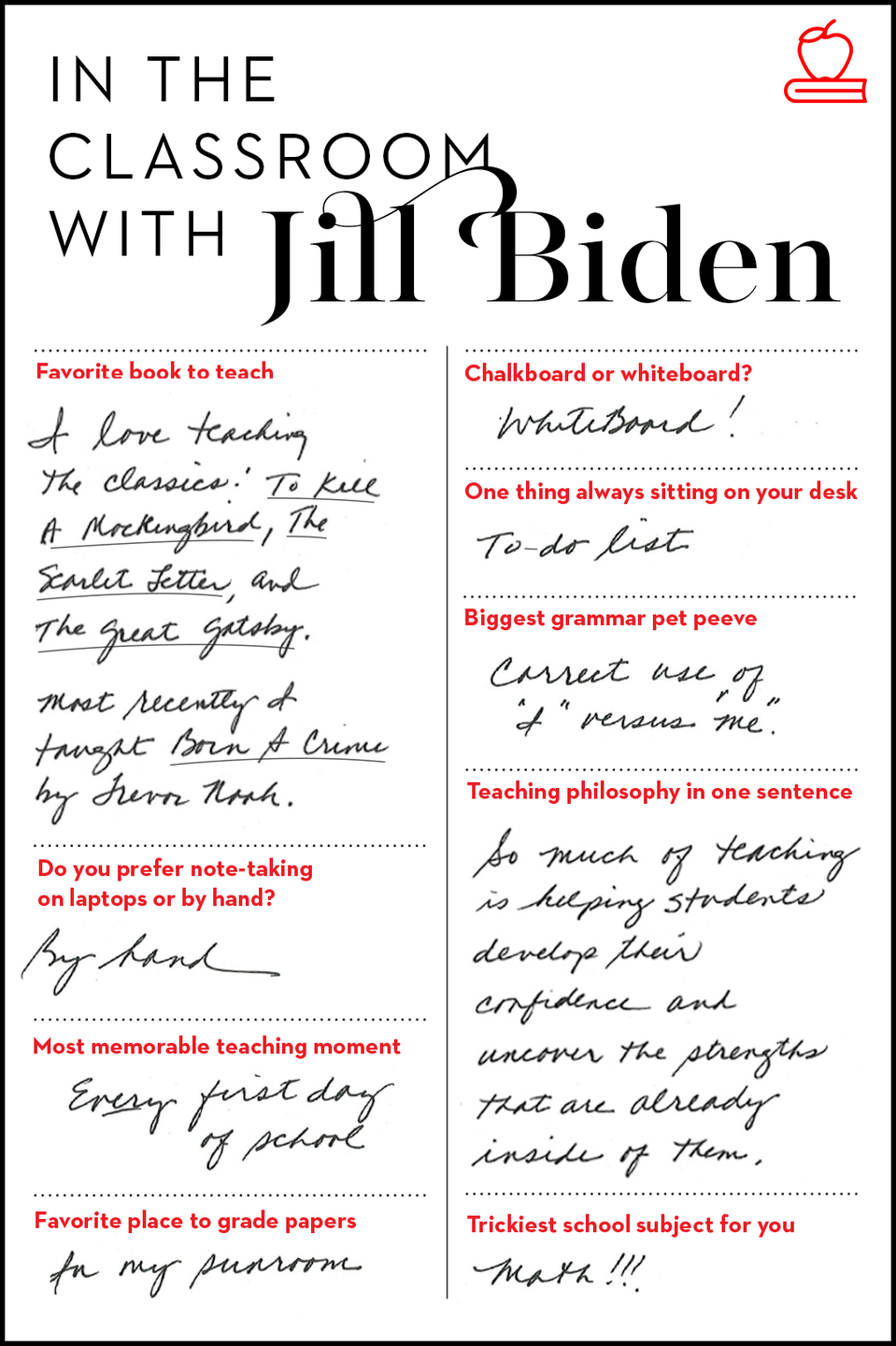First Lady Dr. Jill Biden Opens Up About the Most Rewarding Part of Being a Teacher


Dr. Jill Biden knows a thing or two about education — after all, the First Lady of the United States began teaching English at St. Mark's High School in Wilmington, Delaware 45 years ago.
Now an advocate for community colleges and a professor of writing at Northern Virginia Community College, Jill still has her finger on the pulse of education. We were thrilled to hear that she wanted to help Good Housekeeping celebrate teachers' heroic ways after the coronavirus pandemic created an especially difficult year for education. Drawing from her own experience, Jill shares some of her favorite parts about being a teacher and what she hopes others can come to understand about the noble profession.
What or who made you want to become a teacher?
In college, I started working with older students who struggled with reading. I’ve always loved to read, and I wanted to help them find that same joy that I found in books. It was then that I knew that I’d found my calling.
What have you missed most about being in the classroom during the pandemic?
As I think most teachers will tell you, there’s just so much that doesn’t translate through a computer screen. I’ve missed being able to read people’s body language when they aren’t connecting with the material I’m teaching. I miss the energy of a full class, when everyone is talking over each other and the ideas bounce back and forth between them. I miss the conversations that happen when people linger after class.
This past year did surprise me, though. I thought it would be harder online to create the community that makes our classes so special, but my students really stepped up. We found new ways to connect with each other. I learned a lot, and some of those lessons I’ll take forward to future years of teaching. Still, there are some things you just can’t replace, and I can’t wait to get back in the classroom, this fall.

When has a student showed you appreciation and what kind of impact did it have on you?
A few years ago, I had to tell my class that I would miss the next session for personal reasons. Now, my students have never suffered from a lack of curiosity. So, they immediately began shouting, “Dr. B, Dr. B, where’re you going?” My sister was having the first of her cancer treatments, and she would be in a hospital room for six weeks. I tried to explain with as much composure as I could muster, but the words caught in my throat. I turned to face the whiteboard, hoping to hold back my emotions. When I turned back around, the entire class was standing. They lined up and gave me a hug, one by one. Until that moment, I didn’t realize how much I was struggling, or how much I needed their strength. I recognized then that this community of students was my family too.
What’s the most rewarding part about being a teacher?
There is nothing like helping students find their confidence and begin to use their voices, or seeing that spark light up in their eyes the moment a concept falls into place.
Working with community college students is deeply rewarding. My students work incredibly hard to make it to class, often between work and raising families. They want to learn. They bring diverse perspectives to our studies – of travels and jobs and families and challenges they’ve had to overcome. It is such an honor to be the person to walk them through their studies, to give them the key that could unlock something life-changing.

What makes community colleges so important?
Community colleges are engines of economic prosperity. Most importantly, they meet the needs of students and communities: offering classes that are flexible, so students don’t have to choose between work and school; training for real-world jobs, tailored to the communities they serve; and providing a strong foundation for a four-year degree.
The community college students I teach come from all walks of life: a mother who wants to re-ignite her career after raising her family; a veteran returning to school; a young person who may not be sure yet what education path they want to take; a worker who is seeking new skills for the 21stcentury; a student who is the first in her family to go to college. They all have one thing in common: they are seeking a better life for themselves through education in their own communities.
The President and I believe that two years of community college should be free for all Americans. Kindergarten through high school just isn’t enough education to keep pace with our changing world and growing economy.
Above everything else, what do you wish people would understand about teachers?
Teaching is a calling; it is more than a job.
We are truly dedicated to our students and are committed to their success. Many believe teachers leave school at three o’clock and have summers off. The truth is, teaching in front of our classroom is just one part of the job. We spend hours at home grading papers or creating lesson plans. On top of all of that, we always carry our students with us. Whatever I’m doing, there’s always a part of me that’s thinking about my students, wondering how they are doing, or asking myself what more I can do to help them if they’re struggling.
Especially during this past year, teachers rose to meet the needs of students, and their families too, in unexpected and profound ways. Teachers pushed through the chaos, adapted on the fly and lifted up students when they needed it most. Perhaps one of the positive aspects of the pandemic has been the opening of the relationship between parents and educators and that people began to better understand how hard teachers work.

This story originally appeared in the September 2021 issue of Good Housekeeping. Subscribe here.
You Might Also Like
